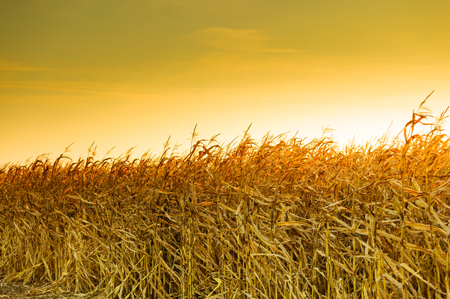Brazil’s Rio Grande Do Sul State Sees Problems for Corn Due to Dryness
Category: Grains

(Agriculture.com) – Brazil’s Rio Grande do Sul, the country’s No. 3 grain-producing state, said that its summer corn crop will have problems due to lack of rains in recent weeks in parts of the state.
Alencar Rugeri, the technical head of the state’s agricultural research body, Emater, said that agronomists are still evaluating the negative impacts of recent dryness in the corn crop, but that it seems certain that the initial estimate for production around 6 million tonnes will be revised downward.
“I can’t say what is the dimension of the problem exactly, but we will have problems,” Rugeri told Reuters.
“The biggest problem if for corn, which is in the stage of flowering where rain is needed,” he said.
Rio Grande do Sul is one of the few Brazilian states that plants most of its corn in the summer, all the others looking to plant mostly over the winter, leaving the main summer crop for soybean cultivation.
The production in the state is important to meat producers in Southern Brazil in the first months of the year, since the country’s main corn crop comes later in the year with the second crop.
Brazil is already expected to face corn supply tightness early in 2020 after record 2019 exports, strong demand from the pork and poultry industries, and rising offtake by corn ethanol makers.
Meat processor JBS, for example, already said it intends to import corn early in the year to deal with higher local prices.
Brazil’s government expects the first corn crop to reach 26 million tonnes in the country in 2019-20, while it sees the second crop at 71 million tonnes.
Rugeri said the situation is not yet as problematic for soybeans, because the oilseed is planted later than corn in the state and still has time for recovery if rains come.
There is forecast for rains of up to 80 millimeters (3.15 inches) in Rio Grande do Sul starting next week through Jan. 17, according to the Agriculture Weather Dashboard at Refinitiv’s Eikon (see related content).
Other producing regions in Brazil, particularly the center-west, received below-average rains in the last two months, but they are expected as well to receive ample rains in January that could help improve soybean and corn fields.




